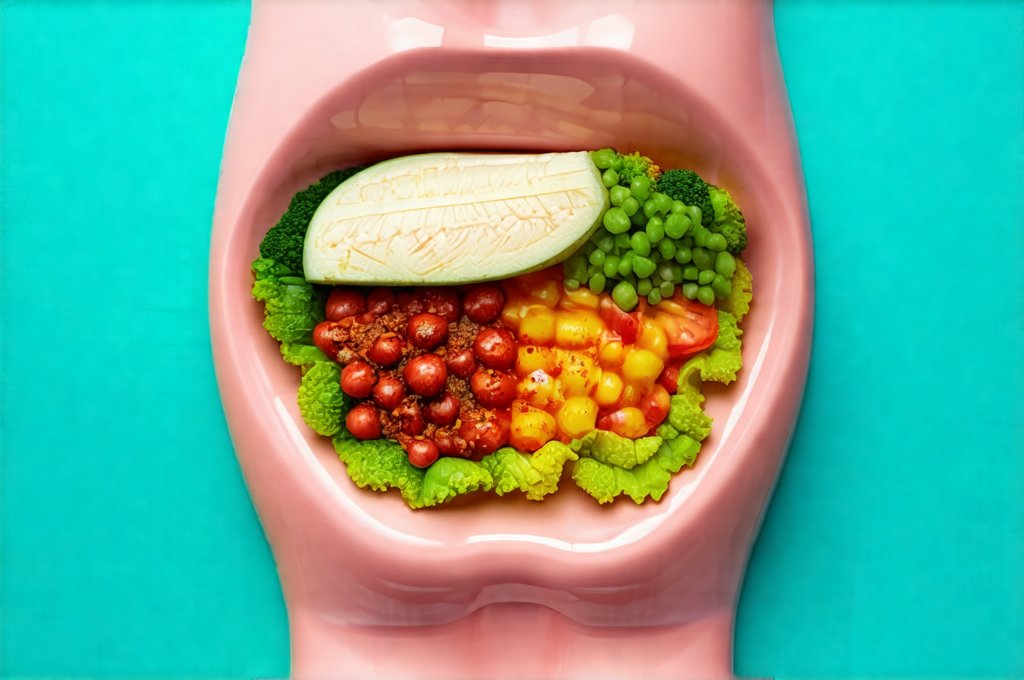Gastroesophageal reflux disease (GERD) is a surprisingly common condition affecting millions worldwide, often characterized by frequent heartburn and acid indigestion. But beyond these well-known symptoms lies a less discussed – yet equally impactful – consequence: changes in taste perception. Many individuals experiencing GERD report that food simply doesn’t taste the same anymore. This alteration isn’t merely about diminished enjoyment; it can significantly affect appetite, nutritional intake, and overall quality of life. It’s crucial to understand this phenomenon because it indicates a complex interplay between digestive health and sensory experience, demanding further investigation beyond typical symptom management.
The link between GERD and altered taste is multifaceted, extending beyond the simple irritation caused by stomach acid. While reflux can directly impact the mouth and throat, leading to temporary taste disturbances, chronic GERD can induce more subtle but persistent changes. These alterations might range from a decreased ability to detect sweetness or saltiness to a metallic aftertaste or even complete loss of taste (ageusia), though this is less common. It’s important to remember that taste isn’t just about what happens in your mouth; it’s an intricate process involving the tongue, nose, and brain, all potentially affected by GERD and its associated complications. This article will explore these connections, offering insight into why food might taste different when you have GERD and potential ways to manage this often-overlooked symptom.
The Mechanics of Taste & How GERD Interferes
Taste perception is far more complex than many realize. It’s not solely the job of your taste buds, which are located primarily on the tongue. Instead, it’s a holistic experience integrating several sensory inputs. When you eat something, volatile compounds released from food travel up to your nasal passages – this is known as retronasal olfaction and contributes significantly (often more than taste buds alone) to what we perceive as “flavor.” Your brain then combines signals from the taste buds (detecting sweet, sour, salty, bitter, and umami), olfactory receptors in the nose, and even textural sensations to create a complete flavor profile.
GERD disrupts this intricate system in several ways. Firstly, chronic acid reflux can cause inflammation and irritation of the esophagus, mouth, and throat. This inflammation directly impacts taste buds, reducing their sensitivity and potentially leading to a diminished ability to perceive certain flavors. Secondly, stomach acid itself can alter the pH balance in your mouth, affecting how taste receptors function. A more acidic environment tends to suppress sweetness and enhance bitterness, making foods less appealing. Finally, medications commonly used to manage GERD – particularly proton pump inhibitors (PPIs) – have been linked to taste alterations as a side effect, although this is often temporary upon discontinuing the medication.
Furthermore, the constant backflow of stomach acid can lead to changes in the oral microbiome – the community of bacteria residing in your mouth. An imbalance in these bacteria can influence how we perceive flavors and even contribute to unpleasant tastes or aftertastes. This highlights that GERD’s impact extends beyond just physical irritation; it affects the entire sensory ecosystem within our mouths, leading to a complex interplay of factors influencing taste perception. Understanding enzyme deficiencies can also shed light on digestive processes and their impact on taste.
Complicating Factors & Other Potential Causes
While GERD is often a primary culprit in taste changes, it’s crucial to acknowledge that other factors can contribute, making diagnosis and treatment more challenging. Many conditions share overlapping symptoms with GERD, including hiatal hernia – where part of the stomach protrudes through the diaphragm – which can exacerbate reflux. Beyond medical conditions, lifestyle choices like smoking, excessive alcohol consumption, and certain medications (even those unrelated to GERD) can also impact taste perception.
It’s important to rule out other potential causes before attributing taste changes solely to GERD. These include: – Nutritional deficiencies (e.g., zinc deficiency). – Neurological disorders affecting sensory processing. – Infections of the mouth or sinuses. – Dental problems and poor oral hygiene. – Certain cancers and their treatments (chemotherapy, radiation).
Moreover, psychological factors like stress, anxiety, and depression can also influence how we perceive taste, making it even more difficult to pinpoint the exact cause. It’s essential to consult a healthcare professional for a thorough evaluation to determine the underlying reason for your altered taste and develop an appropriate management plan. This might involve a combination of diagnostic tests, lifestyle modifications, and potentially medication adjustments. If you suspect food is contributing to these issues, consider exploring are gas and bloating always related?
Identifying Taste Changes & What To Look For
Recognizing specific changes in taste can help you communicate effectively with your doctor and narrow down potential causes. Don’t just say “food tastes different”; try to be more precise. Are certain flavors diminished or absent altogether? Do you experience a persistent metallic, bitter, or sour taste, even when not eating? Is there an unpleasant aftertaste that lingers for extended periods?
Here are some common taste changes associated with GERD: – Dysgeusia: A distortion of taste, where things may taste overly sweet, salty, bitter, or metallic. – Hypogeusia: Reduced ability to taste; flavors seem muted or weak. – Ageusia: Complete loss of taste (rare). – Phantom tastes: Experiencing a taste even when nothing is in your mouth.
Keeping a food diary can be incredibly helpful. Record what you eat, how it tastes, and any associated symptoms like heartburn or indigestion. This will provide valuable information for your healthcare provider to assess the correlation between GERD symptoms and taste changes. Also, pay attention to whether certain foods trigger or exacerbate these alterations. For example, highly acidic foods like citrus fruits or tomatoes might worsen taste disturbances in some individuals. Sometimes healthy foods themselves can be the cause of adverse reactions and altered tastes.
Managing Taste Changes Through Diet & Lifestyle
Dietary and lifestyle modifications can play a significant role in managing both GERD and its associated taste changes. The goal is to minimize acid reflux, reduce inflammation, and support overall digestive health. This includes: 1. Avoiding trigger foods: Common culprits include caffeine, alcohol, chocolate, fatty foods, spicy foods, citrus fruits, tomatoes, and carbonated beverages. 2. Eating smaller, more frequent meals: This reduces the pressure on your lower esophageal sphincter (LES), preventing acid reflux. 3. Staying upright after eating: Avoid lying down for at least 2-3 hours after a meal. 4. Losing weight if overweight or obese: Excess weight puts additional pressure on the abdomen, increasing the risk of reflux.
Beyond these general guidelines, consider incorporating foods that may help soothe the digestive tract and restore taste perception. Ginger has anti-inflammatory properties and can aid digestion. Probiotic-rich foods like yogurt and kefir support a healthy gut microbiome, which is linked to improved flavor perception. Staying adequately hydrated also helps dilute stomach acid and promotes saliva production, essential for taste sensation. It’s important to address mood and food intolerance as they can both impact digestive health and sensory perception.
Seeking Professional Guidance & Potential Treatments
While dietary and lifestyle changes are often the first line of defense, professional guidance is crucial if taste changes persist or significantly impact your quality of life. Your healthcare provider may recommend: – Medication adjustments: If you’re taking PPIs, discuss with your doctor whether a lower dose or alternative medication might be appropriate. – Evaluation for other conditions: To rule out underlying causes beyond GERD. – Referral to an otolaryngologist (ENT): For further evaluation of taste and smell disorders.
In some cases, treatments like zinc supplementation (if a deficiency is identified) or saliva stimulants may be considered. However, it’s important to note that there’s no quick fix for taste changes; managing GERD effectively is often the key to restoring normal taste perception. Remember that patience and consistent effort are essential. It may take time to identify what works best for you and find strategies to mitigate these frustrating symptoms. Ultimately, understanding the connection between GERD and taste changes empowers you to advocate for your health and seek appropriate care. Food fear and anxiety can also play a role in how we experience food, so don’t hesitate to seek support if needed. Finally, remember that some foods cause brain fog and bloating, which could further complicate taste perception.


















